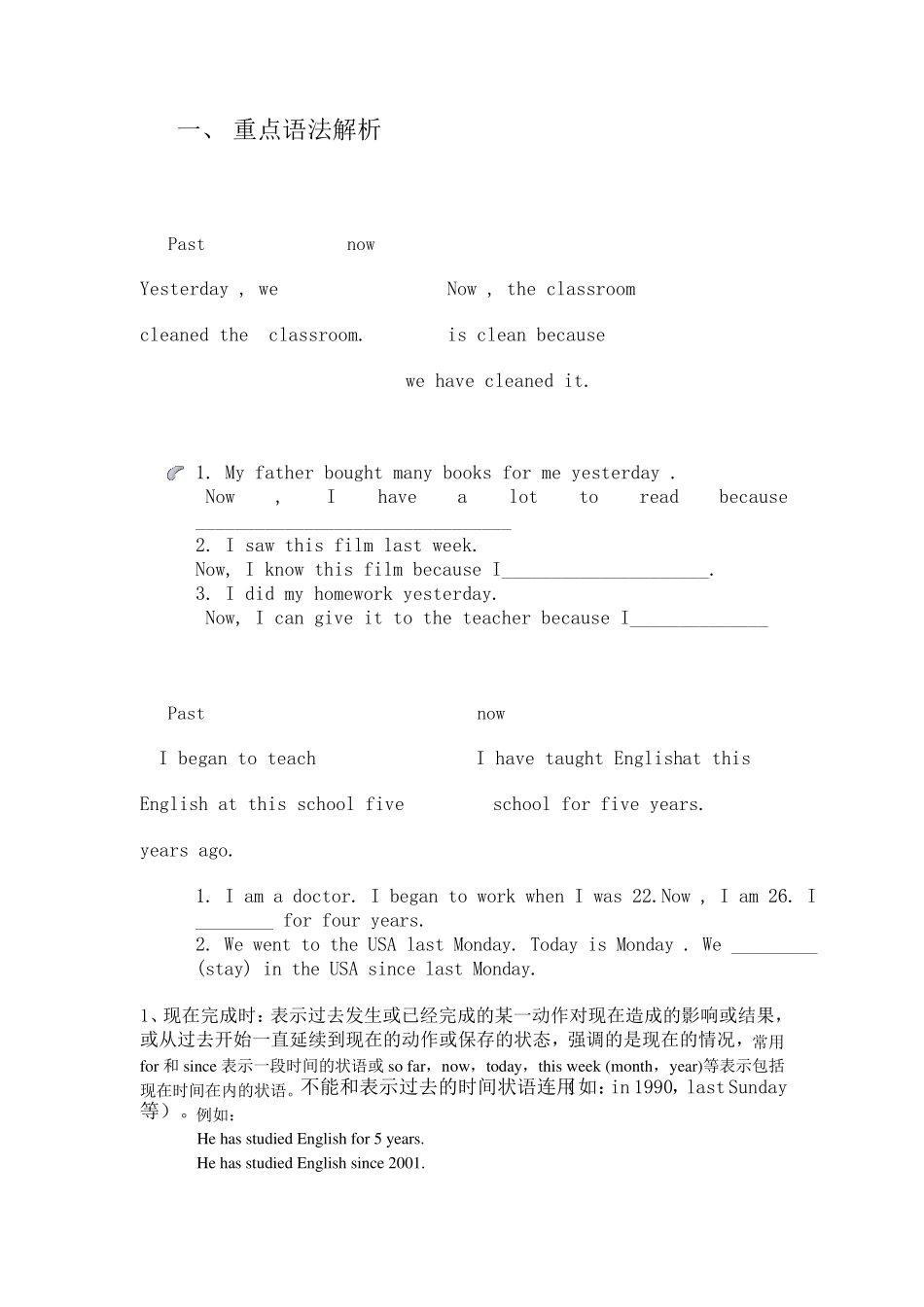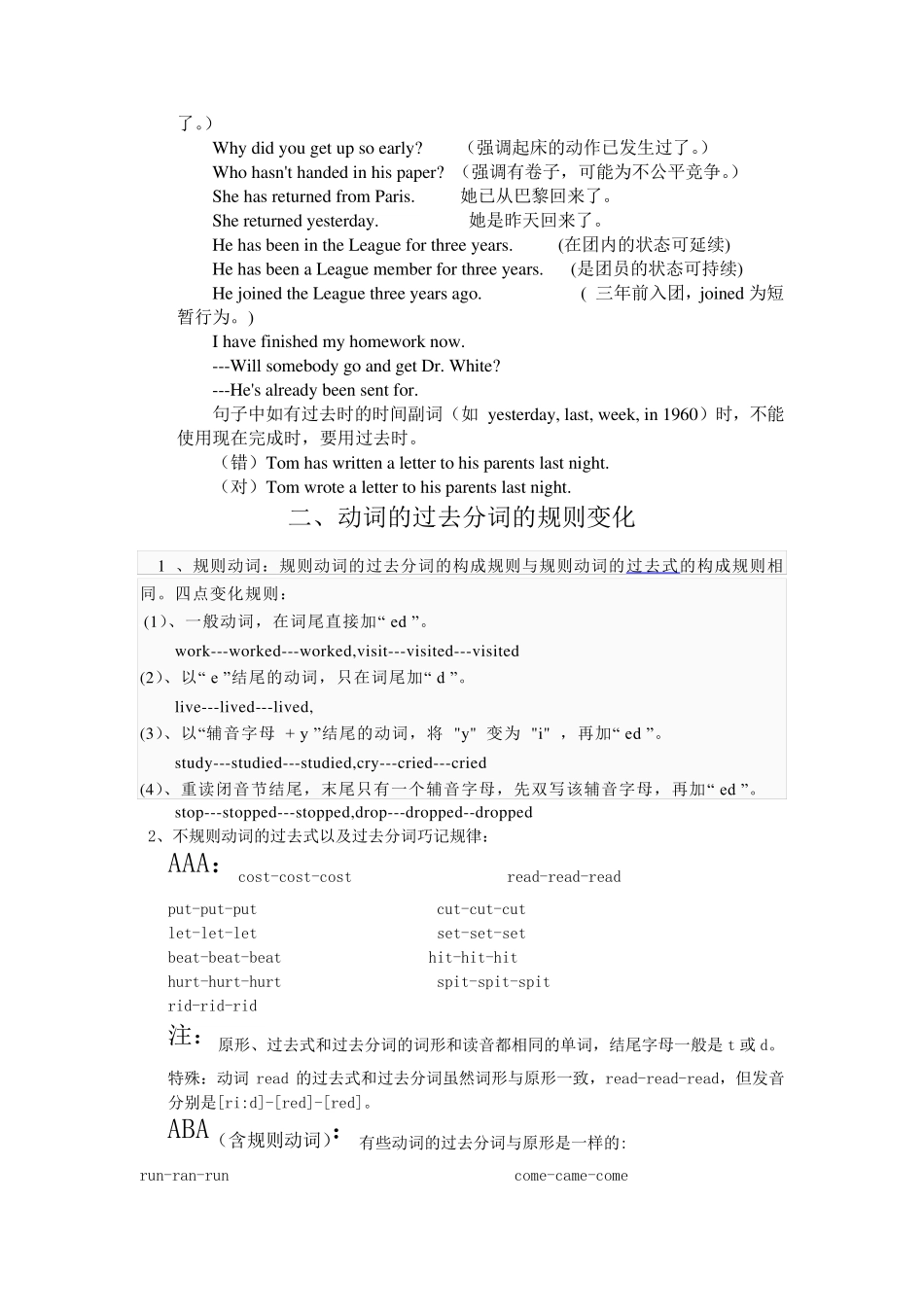一、 重点语法解析 Past now Yesterday , we Now , the classroom cleaned the classroom. is clean because we have cleaned it. 1. My father bought many books for me yesterday . Now , I have a lot to read because ________________________________ 2. I saw this film last week. Now, I know this film because I_____________________. 3. I did my homework yesterday. Now, I can give it to the teacher because I______________ Past now I began to teach I have taught English at this English at this school five school for five years. years ago. 1. I am a doctor. I began to work when I was 22.Now , I am 26. I ________ for four years. 2. We went to the USA last Monday. Today is Monday . We _________ (stay) in the USA since last Monday. 1、现在完成时:表示过去发生或已经完成的某一动作对现在造成的影响或结果,或从过去开始一直延续到现在的动作或保存的状态,强调的是现在的情况,常用for 和 since 表示一段时间的状语或 so far,now,today,this week (month,year)等表示包括现在时间在内的状语。不能和表示过去的时间状语连用(如:in 1990,last Sunday 等)。例如: He has studied English for 5 years. He has studied English since 2001. Now I have finished the work. 注意:表过去某一时间发生的动作或状态一直延续到现在(强调现在),动作或状态一般是延续性的,因此要用表延续性的动词或表状态的动词。表示短暂时间动作的词,如:come,go,die,marry,buy等的完成时不能与for,since 等表示一段时间的词连用。也不能用于how long 引导的疑问句中。 如不能说:He has borrowed the book for two months.(ⅹ) 但可以说:He has kept the book for 2 months. 或:It has been 2 months since he borrowed the book. 或:Two months has passed since he borrowed the book. 这些瞬间动词常与它对应的可以表示时间段的词语进行互换。 become—be borrow—keep buy—have begin (start)—be on open—be open die—be dead leave--be away come--be he...


